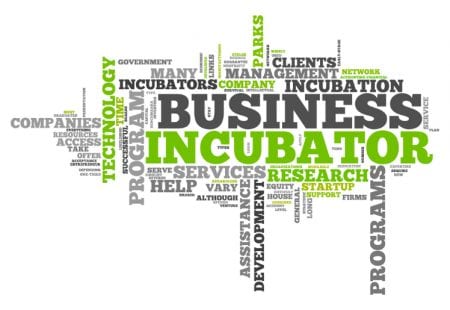If you’re thinking about starting your own business and are in the research and planning phase, you may begin to get overwhelmed by how much needs to be done that does not relate directly to the central purpose or mission of your intended business. Whether you are developing software, creating an invention, opening a new restaurant concept, or manufacturing widgets, the list of areas that require your attention can be staggering.
What is even more intimidating is that much of it may be beyond your areas of expertise. You could have to write a business plan, explore strategic partnerships, source production materials and facilities, secure patents, research markets, and develop a marketing plan.
Sometimes entrepreneurs also happen to be naturally talented business people. Other times, they are simply someone with vision, enthusiasm, and a specialized skill or great idea. Often, they need help with all of the logistical details that go into starting a business.
A good business incubator or accelerator program can help a budding entrepreneur minimize risk for investors and shorten development cycles to achieve milestones more quickly. The purpose of these types of programs is to nurture innovation, create leaders, and generate wealth by fostering entrepreneurs who might otherwise struggle to get a business off the ground.
If you plan to open a business in the Miami metro area, you may be in luck. A number of new facilities and programs have emerged throughout the region which falls into the model of business incubators and accelerators. Some are for-profit organizations who pair services with strategic partners, while others are being funded by civic agencies, schools, and universities.
These organizations may have different structures, areas of interest, and goals but they all exist to help you develop your business, invention, or intellectual property more quickly. Regardless of your niche or industry, one thing is certain, South Florida is a growing cultural and business community with unique qualities that make it alluring to businesses of all kinds. Learn more about business incubators and accelerators in our area and see if you can find one that best suits the needs of your new idea.
Differences Between A Business Incubator And A Business Accelerator
Incubators and accelerators can help you develop your ideas into a scalable business or help take your existing business to the next level. Often times, a startup goes into an incubator to grow at a faster rate or into an accelerator with the hope that it will be acquired or go public. If an existing business goes into an accelerator it is usually to create partnerships, streamline processes, discover new markets, or simply to get to market faster.
Incubators typically allow a startup to develop at a slower pace than an accelerator. An Incubator is where you go to learn the basics, get expert advice, and be inspired by other like-minded entrepreneurs. They are often early-stage startup environments where entrepreneurs can collaborate in an environment that facilitates strong communication and ideation. Incubators often offer some basic business training, with guest speakers and mentors who offer advice, feedback, and perspective.
Accelerators, on the other hand, are the place you go once you’ve refined the vision for your business, completed the early stages of your product design or service, and need help actually launching and getting to market. This is where your marketing strategy is refined, and where you take the necessary steps to actually having a full-blown business, product, or service.
The ultimate goal of an incubator is to help you develop a business idea or vision. The ultimate goal of an accelerator is to complete the program with a viable product or full-functioning business. Many accelerators act on a so-called “off-ramp” model in which startups produce intellectual property to the specifications of venture partners. These partners are the first in line to acquire the new product or technology before it is ever brought to market.
Incubators and accelerators are not always a one OR the other scenario. Sometimes accelerators select the best prospects coming from the incubators. Some locations are established as hybrid-facilities, offering both levels of business development programs.
Accelerators usually attract more attention from private investors and can be a direct path to capital. Incubators are more likely to be a community and/or university funded.
How Do These Programs Help Grow Your Business?
So, what is actually involved in incubating or accelerating a business concept? Programs vary by length, the degree of structure, quality of mentors, the range of resources, and cost. Projects and ideas considered for acceptance are evaluated based on commercial viability, technological impact, projected financial return, the likelihood of success, and potential as a strategic fit with existing industry partners.
The accelerator or incubator typically offers qualified companies resources such as free office or lab space for a set period of time, seed grants, and coaching, as well as access to strategic and venture partners. Each model offers something unique. Sometimes the programs are geared toward specific industries or subject areas.
As an applicant to one of these programs, you should consider the quality and value of the resources and partnerships provided, the duration and flexibility of the program, the proximity to key resources, and the degree of ongoing support after program completion.
Strategic partnerships may be the greatest differentiator between programs. Strong, on-target partnerships can give startups the ability to create intellectual property, products, or service models which can be off-ramped quickly for acquisition or streamlined to commercial viability.
Why Miami? Why NOT Miami?
Miami-Dade County is a vibrant, multicultural community filled with opportunity for those with an entrepreneurial spirit. It’s a gateway to Central and Latin America, a hotbed of Hispanic ‘super consumers’, it has a great climate, a great social scene, and a reputation for being a unique American culture.
When most people think about the economy of the Miami-metro area the service industry comes to their mind. Tourism largely supports the areas retailers, restaurants, hotels, and resorts. But our economy is much more diverse than tourists and retirees. South Florida industries include aviation and aerospace, life sciences, manufacturing, defense, information technology, financial services, logistics, trade, clean technology and a growing interest from the entertainment world.
Additionally, major corporations, including Office Depot, Publix Super Markets, and Carnival Cruise Line, are all based in Florida. More recent arrivals to the Miami business landscape include wireless communications giants such as Motorola and Blackberry Research in Motion as well as a new boom in bioscience, medical research, and aviation.
Small businesses are also thriving in Miami and the surrounding area. According to a 2015 state profile by the U.S. Small Business Administration, there are nearly 2.2 million small businesses in Florida. Many of these businesses are sole proprietorships with nearly two-thirds having less than 5 employees. The Miami-Fort Lauderdale metropolitan area ranked #6 in the nation for small business activity in a recent report by the Kauffman Foundation. In another recent Kauffman report, Miami ranked #2 in the nation for business startup activity.
Another advantage of the Miami-metro area is that Florida’s tax rate is considered one of the friendliest to businesses in the country. Compared to high tax areas like California or New York, doing business in Miami is roughly equal to an automatic 10 percent increase in revenue.
Locating in Miami is also a smart move for any company that wants to do business in South America or the Caribbean. Businesses hoping to appeal to Miami’s diverse population will find cultural business groups in the region such as the South Florida Hispanic Chamber of Commerce or the Dominican International Chamber of Commerce that are willing to help.
Additionally, Florida has been giving a lot of academic attention and support to entrepreneurial education for K-12 students through camps, after-school programs, and full-time high school programs. The major Universities are also getting involved. The University of Miami, Miami-Dade, FIU, and FAU all have active involvement in business incubator and accelerator programs. Miami may not feel like a college town but there are a lot of colleges and universities here.
There are many factors to consider when selecting the right environment in which to grow your business. Consider the burgeoning Miami metro area for its existing infrastructure, its anchor of major industries, its entrepreneurial spirit, and its growing university system. On top of these advantages, there are many top-notch incubator and accelerator programs available for all kinds of businesses.
List of Miami Area Business Incubators & Accelerators
Business experts say Miami is full of resources that can provide guidance or even venture capital to new businesses. Some of the programs listed below cater to specific niche elements of the marketplace. For example, they might be specifically geared to accelerate innovation in financial or medical technology.
Florida Small Business Development Center Network
Beacon Council
Score Miami Business Plan Consulting
Scott Ellington Technology Business Incubator
Founder Institute
Hialeah Technology Center
Innovation Hub at Broward College
The LaunchPad (University of Miami)
Metro Broward Small Business Success Center
Miami Entrepreneurship Center (MEC 261)
StartupUP FIU
Startup Miami
TED Center Business Incubator
Venture Hive
VentureWave
The Florida Business Incubation Association (FBIA) Established in October 1998, the FBIA shares information and develops programs that support the successful growth and operation of business incubators throughout Florida.
The Florida Business Incubation Association (FBIA) list of programs can be found here: http://www.fbiaonline.org/incubators/south.htm





